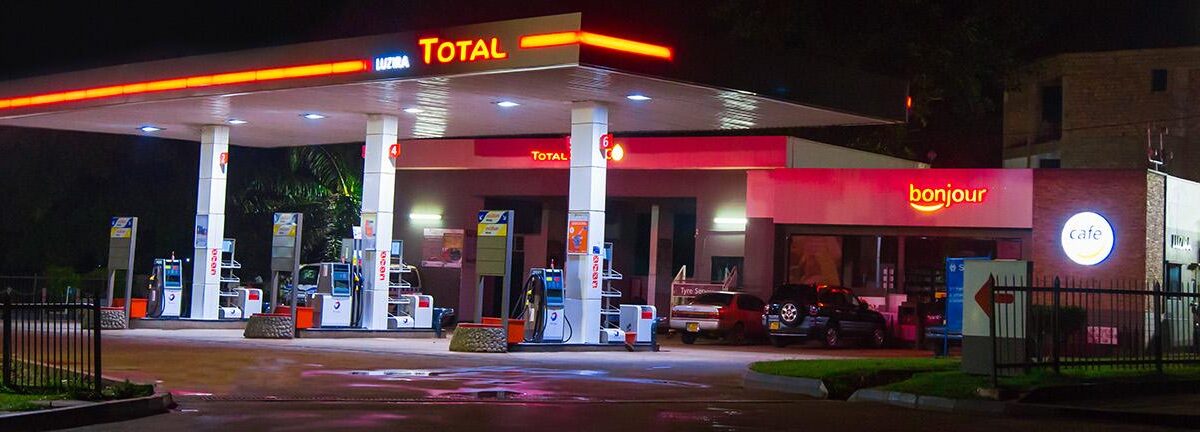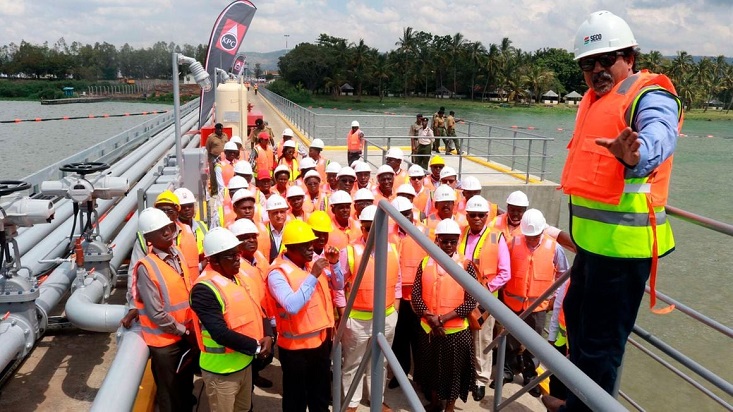Amid a forming storm over the global fossil energy industry, French oil giant Total, changes strategy to wade through the waves of calls for an end to the exploitation of fossil fuels. The strategy includes changing names and going into other industries away from fossils.
Fossil fuels are a kind of energy source formed as a result of geologic processes acting on the remains of organic matter. They include petroleum, natural gas, oil shale’s, bitumen, tar sands, coal, and heavy oils, all of which contain carbon.
Since the deals between Uganda and Tanzania and the oil companies were signed, a number of conservationists and climate activists have been condemning the move and accusing the investors of being insensitive to the environment and the poor communities.
At least 38 CSOs from Uganda and the Democratic Republic of Congo issued a communique rejecting the signing or conclusion of what they called secret agreements for the Tilenga, Kingfisher and East African Crude Oil Pipeline oil projects, until all court cases in various countries are determined. The cases mainly related to issues of human rights and the environment.
In an open statement to President Yoweri Museveni of Uganda and Samia Suluhu Hassan of Tanzania, two activists Vanessa Nakate and Landry Ninteretse urged the two presidents to stop the projects.
“Your Excellencies, building the world’s longest heated crude oil pipeline in the midst of a climate emergency is a terrible development that must be stopped. No responsible government or ethical the financial institution or operator should venture into such deadly business at this stage,” they said while referring to the project as ill-advised and likely to benefit only Total and CNOOC at the expense of local communities hardly hit by the effects of climate crisis and pandemic.
“Total is gradually withdrawing from Central and West Africa over the depletion of resources and now extending its operations in Eastern and Southern Africa,” they added. But Total Uganda General Manager Pierre Jessua, says wherever they have been, they have followed the laws, government guidelines and their own transparency, environmental and human rights policies to ensure the safety of the environment and humans.
A continental climate change activist group, Greenpeace urged Total to stop what they called a dying industry and instead, focus on green or cleaner energy sources. According to an online campaign, Energy Voice, oil products are expected to fall from 55 per cent to 30 per cent in sales by 2030, while the growth of energy production will be based on the two pillars of light nitrogen gas and renewable electricity.
But Jessua says the company has no plan to abandon investments in petroleum production because the world needs oil and poorer countries need the resource exploited to develop their economies. He adds, however, that they are diversifying into greener energy and their petroleum investments will focus more on gas than oil, as they are also changing the name of the company from Total Oil to Total Energies.
Energy Minister Mary Goretti Kitutu says all the concerns that are being raised concern areas that have already been catered for by the government and other players in the sector. She adds that the government realized that the oil and gas activities would happen in the conservation area covering 10 national parks and reserves and all measures were put in place to preserve the ecosystem, following international standards.
Uganda is expected to become a major producer and exporter of petroleum in five years, following the signing of several agreements last week giving a green light to the oil companies to proceed with the development of the oil and gas projects. In one way or another, all fossil fuels are burned to produce the needed energy and as a result, they emit significant amounts of carbon into the environment, which, according to environmentalists, abets climate change and affects the ecosystem.
It is for this reason that environmentalists and conservationists are up against the industry in Africa and Uganda, whose commercial oil developments are being spearheaded by Total. The company is leading the construction of crude oil export pipeline in conjunction with the government of Uganda and Tanzania, from Hoima to Tanga at the Indian Ocean coast.
In both countries, the heated pipeline will traverse protected areas including the iconic Serengeti National Park in Tanzania, while in Uganda most of the oil activities are concentrated in the Murchison Falls National Park and other protected areas.
In 2020, the UK Government announced that it was ending financing of petroleum projects in Africa, but private banks have continued to give financing. Later in January this year, in one of the executive orders against climate change, US President Joe Biden committed his government “to identify steps through which the United States can promote ending international financing of carbon-intensive fossil fuel-based energy while simultaneously advancing sustainable development and a green recovery”.
In 2019, the World Bank said it had stopped financing upstream investments in oil and gas. Upstream activities include exploration and drillings of the resources. The Bank’s statement added that it continues to assist “resource-dependent developing countries” with “advice on energy solutions that are economically viable.”
Activists have accused the world lender of failing to implement its own policy of ending or financing the activities.





